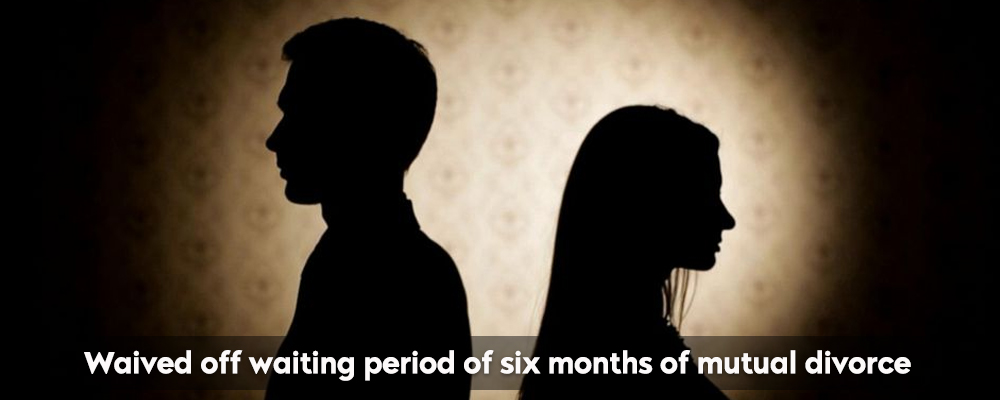Divorce is an unfortunate reality for some couples. However, with the introduction of the Hindu Marriage Act in 1955, the divorce process has become simpler and less time-consuming. Sec-13B of HMA 1955 deals with divorce by mutual consent. In consensual divorce, both parties mutually agree to end the marriage and move on with their lives.
There is a six-month waiting period before an amicable divorce is granted. This waiting period is intended to give the couple a chance to reconsider their decisions and reconcile. In such circumstances, the Supreme Court has the power to waive the waiting period under Article 142 of the Constitution of India. Article 142 of the Constitution of India empowers the Supreme Court to pass such orders as may be necessary for the administration of complete justice in any case. The Supreme Court of the country has applied this authority to consensual divorces where the waiting period has caused undue inconvenience to the parties.
Need A Legal Advice
The internet is not a lawyer and neither are you. Talk to a real lawyer about your legal issue

In 2017, the Supreme Court ruled in Amardeep Singh v. Harvin Kaur that the waiting period for an amicable divorce under Section 13B(2) of the Hindu Marriage Act may be waived if the parties have been separated for a significant period of time. . Their period and marriage are irrevocably broken. The court ruled that the waiting period can be waived if it is determined that continuing the marriage would cause emotional distress to the parties involved. The court also stated that exemption from the waiting period should be granted only in exceptional cases where the interests of justice require it.
The Supreme Court judgment of 1 May 2023 in Shilpa Shailesh v. Varun Shreenivasan brought relief to many couples who were stuck in loveless marriages and wanted to move on with their lives. The decision also paved the way for a more liberal approach to divorce by mutual consent, allowing couples to end their marriages without unnecessary delays.
Basis of judgment
- The Supreme Court has stated the factors that cause the irrevocable breakdown of marriage For divorce between consenting parties under Article 142 of the Constitution.
- A five-judge constitutional bench holds that the high court can exercise general power such as to grant divorce to consenting parties in the case of irretrievable breakdown of marriage.
- The right to divorce on the grounds of irretrievable breakdown of marriage is not a matter of right and must be exercised with caution.
- Period of cohabitation of the parties after marriage.
- When the last party lived together.
- The nature of the allegations made by the parties against each other and family members.
- Orders from time to time in court proceedings and their cumulative effect on personal relationships.
- How many attempts have been made to resolve the dispute through court intervention or mediation and when was the last attempt etc.
- The period of separation should be long enough and six years or more will be a relevant factor.
- The court explained that these factors must be evaluated taking into account the economic and social status of the parties, whether the parties have children, their age, their level of education, and whether their spouses and children are dependent.
The waiting period for divorce by mutual consent under Section 13B (2) of the Indian Marriage Act can be waived by the High Court under Article 142 of the Constitution of India. However, a waiver should only be granted in exceptional circumstances where the interests of justice require it. The Court’s decision in Amardeep Singh vs Harvin Kaur has made many couples happy and paved the way for a more liberal approach to divorce by mutual consent.
If you have any legal queries or need legal assistance, you can visit the Lead India website and submit your question or request for legal services. The platform ensures the privacy and confidentiality of all client information and provides a secure and user friendly interface for seamless communication between clients and lawyers.





 Talk to a Lawyer
Talk to a Lawyer